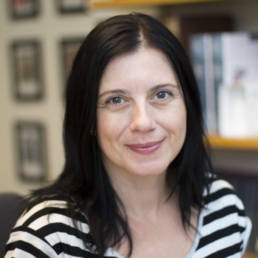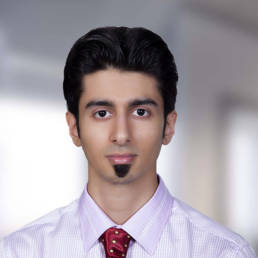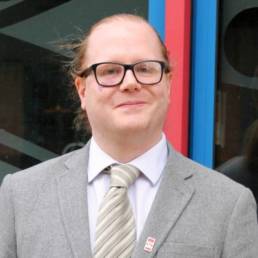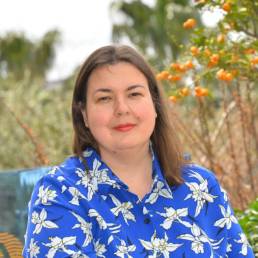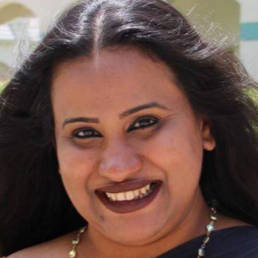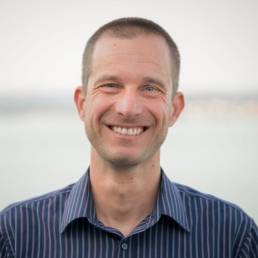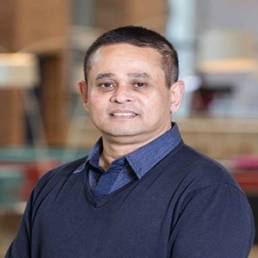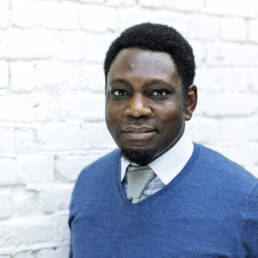ENAI Webinars
ENAI webinars are free open webinars on various topics related to academic integrity and research ethics. Anyone interested in academic integrity and ethics is invited!
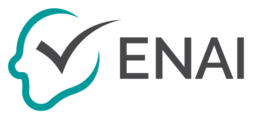
About
- Topics: various on academic integrity & research ethics
- Lecturers: ENAI-related or other experts
- Audience: everyone interested in the topics
- Price: free
- Registration: Registration is necessary to receive a webinar link. Please click on the individual webinars to register.
Programme
Utilizing AI in Higher Education and Introduction to the European Network for Academic Integrity (ENAI)
Sonja Bjelobaba
Wed, 24 April 2024 14:00 - 15:30 CEST
Annotations
Utilizing AI in Higher Education and Introduction to the European Network for Academic Integrity
Sonja Bjelobaba
24 April 2024 from 14:00 to 15:30 CEST
Join us for an engaging webinar where we explore the dynamic relationship between artificial intelligence (AI) and ethical integrity in higher education. Discover how a holistic approach to AI implementation can foster and shape the future of academia. Gain insights from our ENAI expert, Sonja Bjelobaba, as we delve into strategies for navigating ethical challenges and maximizing the positive impact of AI on educational practices. Part of this event will be dedicated to introducing our network, the European Network for Academic Integrity (ENAI), highlighting its impactful work and the benefits to members. This webinar is free and open to all, whether you’re a member or not.
Dr Sonja Bjelobaba is a researcher at the Centre for Research Ethics & Bioethics as well as an associate professor in Serbian, Croatian, and Bosnian at the Department of Modern Languages at Uppsala University (Sweden). Dr Sonja Bjelobaba is a vice-president of the European Network for Academic Integrity (ENAI) and co-ordinator of the Erasmus+ strategic partnership project Bridging Integrity in Higher Education, Business and Society (BRIDGE, 2020-2023). She defended her thesis at the University of Gothenburg, where she, as an educational developer, taught research integrity, postgraduate supervision courses and other courses for faculty relating to teaching and learning in higher education. Her research concentrates on academic and research integrity in the Balkans and Sweden.
Previous Webinars
Ethical and inclusive approaches to student use of Artificial Intelligence
Mary Davis
13th March 2023, 13:00 CEST
The upcoming session will delve into the ethical and inclusive aspects that have arisen from the widespread use of AI by students. The session will provide practical methodologies to help students make ethical decisions while engaging with AI technologies, by incorporating Universal Design for Learning principles in a structured traffic light framework. Dr Mary Davis, who is the academic integrity lead at Oxford Brookes University, will highlight the implications of AI on inclusivity and advocate for prioritizing inclusive practices when adapting assessment methods. Dr Davis has been a researcher of academic integrity for almost two decades and is a member of the QAA UK Advisory Board on Academic Integrity and the Board of Directors of the International Centre for Academic Integrity. In recent years, Dr Davis has focused on promoting positive, inclusive approaches to Artificial Intelligence and academic integrity.
About the lecturer
Professor Mary Davis PFHEA is academic integrity lead at Oxford Brookes University, UK and sub-head of ENAI Educational Materials Working Group. She has been a researcher of plagiarism and academic integrity since 2005. She co-authored the study skills book ‘Referencing and Understanding Plagiarism’ and book chapters on plagiarism, proofreading and inclusion . She has dedicated her recent practice and research to improving inclusive practice in academic integrity and ensuring educational opportunities for all students to learn good academic practice.

Double Trouble: Inappropriate Image Duplications in Biomedical Publications
Elisabeth Bik
8th September 2023, 13:00 CEST
Science builds upon science. Even after peer-review and publication, science papers could still contain images or other data of concern. If not addressed post-publication, papers containing incorrect or even falsified data could lead to wasted time and money spent by other researchers trying to reproduce those results. Several high-profile science misconduct cases have been described, but many more cases remain undetected. Elisabeth Bik is an image forensics detective who left her paid job in industry to search for and report biomedical articles that contain errors or data of concern. She has done a systematic scan of 20,000 papers in 40 journals and found that about 4% of these contained inappropriately duplicated images. In her talk, she will present her work and show several types of inappropriately duplicated images and other examples of research misconduct. In addition, she will show how to report scientific papers of concern, and how journals and institutions handle such allegations.
About the lecturer
Elisabeth Bik, PhD is a Dutch-American microbiologist who has worked for 15 years at Stanford University and 2 years in industry. Since 2019, she is a science integrity volunteer and consultant who scans the biomedical literature for images or other data of concern and has reported over 7,000 scientific papers. For her work in science communication and exposing research misconduct she received the 2021 John Maddox Prize.
How to Review and Deal with Peer Review in Academic Publishing
Alireza Salehi-Nejad
13th October 2023, 13:00 CEST
Going through the peer review process can be very challenging; particularly, when one has invested so much time in their manuscript and a reviewer thinks it needs more work. This workshop aims to provide some useful advice on how to deal with the reviewer comments and keep the submission moving smoothly through the publishing process. In this workshop, you will be familiarized with the initial steps you should take, and the correct tone and language to use in your response letter. In addition, this workshop intends to help you to see your manuscript through the eyes of an editor and reviewer; hence, you can spot any shortfalls or mistakes prior to submitting the manuscript. Ultimately, this workshop facilitates levelling the playing field by revealing what an editor really wants.
Topics & Learning Outcomes:
- The purpose, process, and responsibilities in peer review
- Types of peer review
- Recent developments in peer review
- How a manuscript is reviewed
- Evaluating methodology
- Detecting research misconduct
- How reviewers should provide constructive criticism and meaningful feedback to authors and editors
- Types of revision
- Examples of constructive feedback
- Responding to reviewers’ comments
- How to become a reviewer
About the lecturer
Alireza Salehi-Nejad is a multidisciplinary researcher at the Faculty of World Studies, University of Tehran. Alireza is the Head of ENAI’s Academic Integrity Surveys Working Group, and frequently edits and reviews manuscripts for journals published by SAGE, Elsevier, Cambridge University Press, and Nature, among others. Alireza serves as a mentor in Web of Science Academy, and is recognized as the Top Reviewer in Social Sciences by Publons and received the Sentinel of Science Award in 2016, and the Excellent Reviewer Award in 2017.
Presentation slides
Spring Webinars (February 23 - June 23)
The rising threat of Paper Mills
Anna Abalkina
10th February 2023, 13:00 CET
There is a rising challenge of paper mill activities. Editors, journals, and publishers fail to detect paper mill production and it infiltrates academic literature. Paper mills use different operation strategies and are very adaptive. Anyway, we can summarize tips on how to recognize suspicious papers from paper mills.
About the lecturer
Dr Anna Abalkina is a research fellow at Freie Universität Berlin (Germany). She earned her PhD from the University of Perugia (Italy). She has a background in international economics, but later she concentrated her research on academic misconduct, plagiarism, paper mills and predatory and hijacked journals. Her research is devoted not only to the detection and analysis of scientific misconduct but also to the explanation of its costs and consequences. Since 2013, Dr Anna Abalkina has been active as an expert on Dissernet, a grassroots initiative to detect plagiarism in the PhD theses and scientific papers in Russia. In 2022, Dr Anna Abalkina, in collaboration with Retraction Watch, created the list of hijacked journals, “The Retraction Watch Hijacked Journal Checker”, which is regularly updated.
Gamification of Academic Integrity
Gamification of Academic Integrity Working Group, Erasmus+ BRIDGE project team & H2020 INTEGRITY project team
10th March 2023, 13:00 CET
Popular interventions in helping to educate students on academic integrity values and writing skills come in the form of learning modules set up online. However, research has shown that such interventions are often monotonous, with static content, some animations and multiple-choice questions. This is where the principles of game design come in. Academics have long recognised the benefits of using these principles to enhance learning and engagement, which can lead to knowledge retention and skills acquisition.
ENAI Gamification Working Group, in collaboration with the University of Wollongong in Dubai and Malaysia colleagues, are currently working to develop a beta version of an academic integrity game-based learning module with funding from the University of Wollongong (Australia) Teaching & Learning Funds to educate students on academic integrity values. This presentation provides a brief overview of the project aims and proposed outputs.
Integrity Games is a research-based online teaching tool on academic integrity for university undergraduate students. The tool is freely available in five European languages, including English and French. The tool aims to engage students in reflections on realistic and relevant academic integrity issues that lie in the grey zone between good practice and misconduct. It aims to 1) motivate students to learn more about academic integrity, 2) increase their awareness of the grey zone issues, and 3) deepen their understanding of misconduct – particularly plagiarism and falsification. To achieve these aims, Integrity Games presents four gamified cases taking students through an engaging narrative involving a series of choices on how to act in concrete situations where academic integrity is at stake. This presentation provides a brief overview of the aims and features of the Integrity Games, developed as an output of the H2020 INTEGRITY project.
Academic integrity, research integrity, integrity in business, and integrity in society are usually described as separate fields. The Erasmus+ Strategic partnership project “Bridging Integrity in Higher Education, Business and Society” (BRIDGE 2020-1-SE01-KA203-077973) seeks to create a bridge between the academic sphere, business and society to reach a broader understanding of interrelated aspects of integrity between these fields. The target groups of this project are early career researchers, i.e. master and PhD students, and their supervisors. Within the scope of the project, we developed a range of gamified educational material that can be found OA on the project outputs website. This presentation provides a brief overview of the gamified educational materials developed.
About the lecturers
Dr Zeenath Reza Khan (University of Wollongong, Dubai)
Dr Zeenath Reza Khan is the Founding President and Board Member of the Centre for Academic Integrity in the United Arab Emirates. She is also an Assistant Professor of Responsible Information Systems at the Faculty of Engineering and Information Sciences, and Program Director for Freshman Pathway Programs at the University of Wollongong in Dubai. Dr Khan is a national and international award-winning academic with more than 80 publications and an edited book titled Integrity in Education for Future Happiness (2021). Dr Khan’s research interests are in academic integrity, ethics in IT, teaching and learning, and STEM for girls.
Dr Mads P. Goddiksen (University of Copenhagen, Denmark)
Dr Mads P. Goddiksen is part of the international team that developed the Integrity Games. The team also included researchers from the universities in Geneva and Debrecen and the Swedish company ImCode. Mads is a Postdoctoral researcher at the University of Copenhagen (Denmark). He researches academic and research integrity as well as general philosophy of science. He holds an Msc in philosophy and physics and a PhD in philosophy of science.
Dr Sonja Bjelobaba (Uppsala University, Sweden)
Dr Sonja Bjelobaba is a researcher at the Centre for Research Ethics & Bioethics as well as an associate professor in Serbian, Croatian, and Bosnian at the Department of Modern Languages at Uppsala University (Sweden). Dr Sonja Bjelobaba is a vice-president of the European Network for Academic Integrity (ENAI) and co-ordinator of the Erasmus+ strategic partnership project Bridging Integrity in Higher Education, Business and Society (BRIDGE, 2020-2023). She defended her thesis at the University of Gothenburg, where she, as an educational developer, taught research integrity, postgraduate supervision courses and other courses for faculty relating to teaching and learning in higher education. Her research concentrates on academic and research integrity in the Balkans and Sweden.
ENAI Recommendations on the Ethical use of Artificial Intelligence and the European Conference on Ethics and Integrity in Academia 2023 (ECEIA 2023)
Tomáš Foltýnek (President of the ENAI board) & Shivadas Sivasubramaniam (Head of ECEIA 2023 Organising Committee)
14th April 2023, 13:00 CEST
In this webinar, Dr Tomáš Foltýnek will present the ENAI Recommendations on the ethical use of Artificial Intelligence (AI). ENAI recognises the increasing interest from the academic community over the use of AI in Higher Education Institutions (HEIs) and the opportunities and challenges it brings for academic integrity. These recommendations aim to support the academic and research community on the use of AI tools, with a particular focus on the importance of equipping students and staff with the skills and knowledge to use these tools ethically. These recommendations also focus on the urgency to develop and implement academic integrity policies addressing the use of AI tools.
Dr Shiva will provide details and discuss the forthcoming European Conference on Ethics and Integrity in Academia (12th to 14th July 2023 – ECEIA 2023). He will introduce and elaborate on details about keynote speakers and their expertise. This webinar will also detail the themes/subthemes for this conference by detailing the different forms of submissions, including presentations, workshops, and posters (including size specifications). Additionally, information about Derby and travel arrangements will also be given. The participants will also be able to clarify any questions concerning the conference and its dual registration processes.
About the lecturers
Dr Tomáš Foltýnek is an assistant professor at Masaryk University (Czechia). He represents Czechia in the Council of Europe’s Pan-European Platform for Ethics, Transparency, and Integrity in Education (ETINED). He also serves as a Deputy Head of the Working Committee on ethics in scientific and pedagogical work within the Council of Higher Education Institutions in Czechia. He has been dealing with plagiarism since 2008. He was involved in and has led several projects on plagiarism and academic integrity. Since 2013 he has been organizing conferences on this topic. He is the President of the Board of the European Network for Academic Integrity (ENAI) and a certified VIRT2UE research integrity trainer.
Dr Shiva is one of the founding members of ENAI and has been actively promoting medical ethics and academic integrity. He is currently the head of biomedical and forensic science, at the University of Derby (UK), where the 9th European Conference on Ethics and Integrity in Academia (ECEIA 2023) will be hosted.
As an active researcher in medical sciences and ethics, he has published several manuscripts in both areas. As the head of the Ethics and Integrity Advisory Working Group (EIAWG), he is responsible for the ENAI Ethical Approval procedures.
Tips and tricks for running survey-based research in Academic Integrity
Phil Newton (Swansea University, UK)
12th May 2023, 13:00 CEST
Surveys are a very common research method, with many positive features; they can be quick to run and a good way of collecting large amounts of data. However, good survey-based research has a number of important methodological features which can make a huge difference to the quality and meaning of the data. These features include the phrasing and order of the questions, the number and type of questions, the way in which the survey is distributed, to whom, and the way in which the data are analysed. These features are especially important in the field of academic integrity, where we often ask people about challenging behaviours. This webinar will share some simple best practices for the conduct of survey research, in a way designed to help people who want to run their own surveys and those who want to analyse existing survey-based data.
About the lecturer
Professor Phil Newton is from Swansea University (UK). He has many years of experience running and analysing survey-based research and learned many lessons the hard way. This webinar is offered to try and help people learn the easy way!
Do-It-Yourself forensic linguistic techniques for authorship identification, ghostwriting and plagiarism detection
Olumide Popoola (Queen Mary University of London, UK)
9th June 2023, 14:00 CEST
Detecting academic misconduct in written assessment can be significantly aided by the application of forensic linguistic analysis. Much of the work in this area is nowadays conducted computationally using proprietary tools and while this has led to useful advances, these tools are not easily accessible and can be too blunt for the nuances of misconduct cases.
This webinar shares open-access tools and simple techniques that can be used by any and all educators to address typical academic misconduct cases such as disputed authorship, ghostwriting, intentional vs non-intentional plagiarism and the use of generative AI. Olu will also present proposals for reducing academic misconduct in written assessment
About the lecturer
Olumide Popoola FHEA, is an education developer at the Queen Mary University of London. Olu has a background in forensic linguistics and his research and professional practice are directed to the application of linguistic deception detection techniques in academic and research contexts. In 2021 he led the London and South East Academic Integrity Network (LSEAIN) Contract Cheating Checklist Working Group (see here for the checklist). Outside of higher education, Olu provides training on linguistic deception detection in the regulatory sector. You can find out more about his work at https://outliar.blog.
Autumn Webinars (September 22 - December 22)
Artificial intelligence and academic integrity
Thomas Lancaster
9th September 2022, 13:00 CEST
Artificial intelligence is becoming part of everyday life for many, so much so that many current students will find themselves relying on artificial intelligence tools when they progress into employment. The educational community has not yet fully embraced the opportunities offered through artificial intelligence or considered the possibly ways in which these technologies could be misused by students, allowing them to breach academic integrity standards. Join this webinar where Dr Thomas Lancaster will discuss artificial intelligence technologies available for students now and how this can be used to provide them with unauthorised assistance for written and creative assignments. He will demonstrate written and graphical outputs from current tools that students can access and consider how the educational community should adapt its processes in light of artificial intelligence.
About the lecturer
Dr Thomas Lancaster is a Senior Teaching Fellow in Computing at Imperial College London, UK, with responsibility for student support. He has been researching academic integrity related topics since 2000. Thomas is best known for research into contract cheating, a threat to academic integrity he first discussed in 2006. He now sees a similar threat posed by artificial intelligence and encourages the sector to consider early interventions to this threat. Thomas works with sector bodies on academic integrity and regularly delivers keynote addresses and provides training on associated issues.
You can find out more about Thomas at www.thomaslancaster.co.uk.
Improving skills as a thesis supervisor
Veronika Krásničan & Dita Henek Dlabolová
14th October 2022, 13:00 CEST
The webinar is intended for all academics and also PhD students who supervise or will supervise students’ theses. Experienced supervisors, “newbies” in this role and future supervisors are invited. The aim of the webinar is to discuss the necessary knowledge and skills from the field of academic and research integrity that master’s and PhD students should have for doing their research and writing a thesis. This will be promoted through the presentation and discussion of the checklist for thesis supervisors developed within the Erasmus+ Strategic Partnership project Bridging Integrity in Higher Education, Business and Society (BRIDGE). The checklist will be shared with the participants and the complementary checklists for master’s and PhD students will also be introduced.
Follow the Bridge project on Twitter not to miss the latest news!
About the lecturers
Veronika Krásničan (earlier Králíková) is a researcher and project output leader of the BRIDGE project. She leads an output focused on bridging research ethics and academic integrity. In her research activities, she focuses also on contract cheating and business ethics.
Dita Henek Dlabolová is an executive manager of the ENAI. She is an experienced teacher and trainer in the field of academic integrity with the main focus on plagiarism prevention and academic writing. She has been involved in several academic integrity and interpretation of outputs of text-matching software.
Celebrating the European Year of Youth through Academic integrity. How students help in establishing institutional integrity and values
Oraz Myradov
11th November 2022, 13:00 CET
This webinar will be moderated by Oraz Myradov and count Megan O’Connor as the invited speaker to present students’ perspectives on the topic of academic integrity in digitised education. Megan is an ENAI award winning academic integrity expert from the Republic of Ireland.
Students play a crucial role in upholding the fundamental values of academic integrity. With the digitalisation of education, not only are many students under more pressure and mental health challenges, but the risk of getting caught is, for many, considered less than the risk of not doing well. This begs to question of where we are placing our value as a society – on quality education or on grades and where does this stem from? How the relevant examination tools can help to ensure the quality of education while putting students in the centre of the learning process and what role do teachers and administration play in it?
About the lecturer
Oraz Myradov is the head of the ENAI working group for students and also Executive Committee member of the European Students’ Union (ESU). Representatives of the ESU are members of the ENAI working groups for students.
The purpose of the ENAI working group for students is to integrate students and student bodies in ENAI activities, support student community with academic integrity tools and resources and consult with ENAI members on students’ involvement in the area of academic integrity.
The European Students’ Union (ESU) is the umbrella organisation of 45 National Unions of Students (NUS) from 40 countries. The aim of ESU is to represent and promote the educational, social, economic and cultural interests of students at the European level towards all relevant bodies and in particular the European Union, Bologna Follow Up Group, Council of Europe and UNESCO. Through its members, ESU represents almost 20 million students in Europe.
Support for victims of academic misconduct: an interactive portal and support network
Rita Santos
9th December 2022, 13:00 CET
This webinar aims to raise awareness of the importance of supporting victims of academic and research malpractice through evidence from current research. This webinar will also present the features of the Victim Support Portal. Participants will be guided through the Portal to acquire knowledge on aspects related to academic and research malpractice and the importance of getting support, and how to seek support if experiencing a case of academic or research misconduct. Aspects related to the types of reported misconduct actions and the impact of the Portal will also be discussed, as well as the resources currently available (e.g. bibliography, stories and blog).
About the lecturer
Dr Rita Santos is a senior researcher and project manager of the ENAI and the Coordinator of ENAI’s Support for Victims of Academic Misconduct Working Group. She was a junior researcher at the H2020 INTEGRITY project, where she developed teaching materials about academic integrity and responsible conduct in research for high school students. She also collaborated in seminars about research ethics and integrity for biomedical PhD students and Postdoctoral researchers. She is a certified VIRT2UE research integrity trainer.
Our lecturers
Previous lecturers
Stay with us
Is there a topic you would love to hear about? Would you like to run an ENAI webinar?


